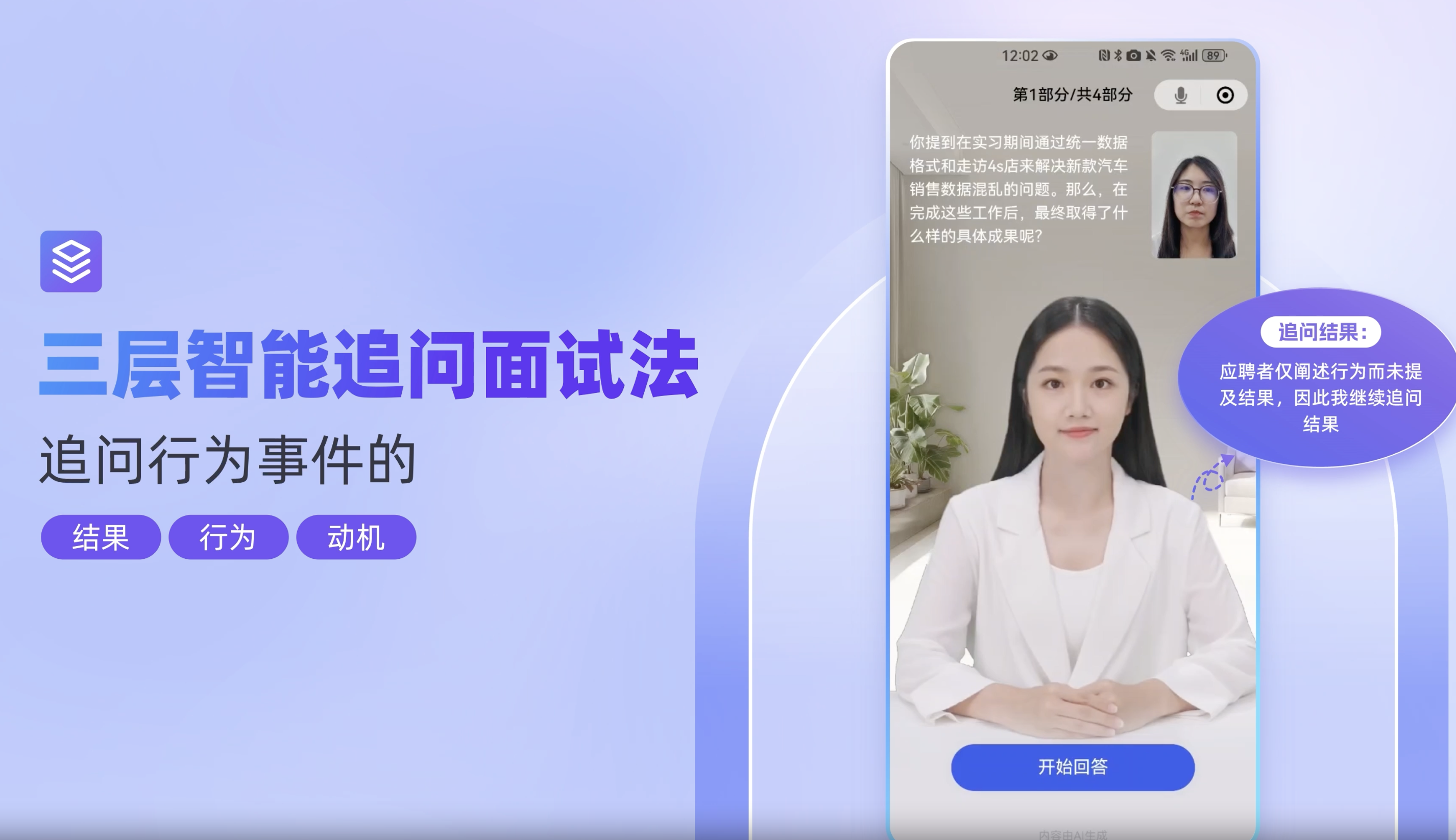AI-driven interviews are beginning to replace written assessments in China's campus hiring, and recruitment-technology firms expect the tool to expand quickly as large employers face record volumes of applicants.

Photo from Jiemian News
by XIAO Fang
In the 2026 graduate recruitment season, several major companies have added AI interviews as an early filtering step. These sessions, usually delivered through WeChat mini-programs, last 20 to 30 minutes and test communication, logic and behavioral tendencies rather than technical or company-specific knowledge. For employers, the format offers a standardized way to reduce the number of candidates before human HR screening.
Demand for such tools is rising as competition intensifies. In some leading internet firms, the admission ratio in 2025 campus recruitment reached around 50:1, requiring HR teams to filter out as much as 80% of applicants at the earliest stage. The pressure to lift screening efficiency has pushed companies to adopt automated interviews and accelerated investment in HR software.
This has opened opportunities for HR SaaS providers. Alibaba and Ant Group primarily use systems supplied by Beisen, while Meituan adopts Nowcoder. Beisen said its AI interviewer product—now in version 2.0—covers more than 300 job models and evaluates eight capability dimensions, from general ability to psychological risk markers. Employers using the system say it can cut venue, travel and repeated-interview costs by about 30%. Foreign companies have also begun using AI interviews to assess English fluency and general communication skills.

As the technology spreads, new business opportunities have emerged on the jobseeker side, too. On social platforms such as Xiaohongshu, candidates increasingly search for mock questions and tips on navigating AI systems. Recruitment platforms have responded by launching new tools for user retention: Boss Zhipin has rolled out AI mock interviews for students and early-career workers, as well as automated interview summaries that help candidates review their performance. The company plans to expand large-model applications across more recruitment scenarios.
Yet the limits of AI interviewing remain clear. While the systems are suitable for early-stage filtering, HR executives say they cannot yet handle deeper evaluation for mid- or senior-level roles, where human judgement and nuanced conversation remain essential.
Some see larger potential in blue-collar hiring, where interview volumes are high and qualification requirements more standardized. Companies including Beisen, Haina AI and Zhaopin have begun developing tools tailored to this segment, including gamified assessments that test dexterity and suitability for assembly-line work. During peak seasons, factories may conduct up to 200 interviews a day, making automation particularly valuable.
In white-collar recruitment, the greater bottleneck lies not in interviews but in resume screening and candidate intent confirmation—tasks that HR teams say can take up nearly 70% of their workday. As a result, several platforms are bypassing the crowded AI-interview segment and focusing instead on automating these higher-friction stages.
With HR-tech providers expanding their use of large language models and refining product direction, AI tools are expected to move deeper into recruitment workflows. But the technology remains a complement rather than a replacement: automation may reshape early-stage processes, while human hiring decisions will continue to dominate at more senior levels.